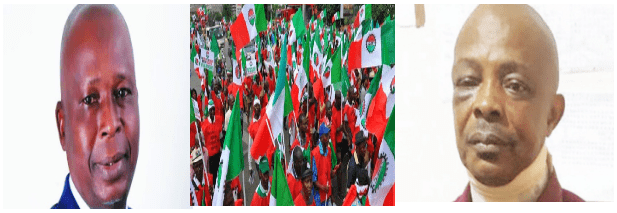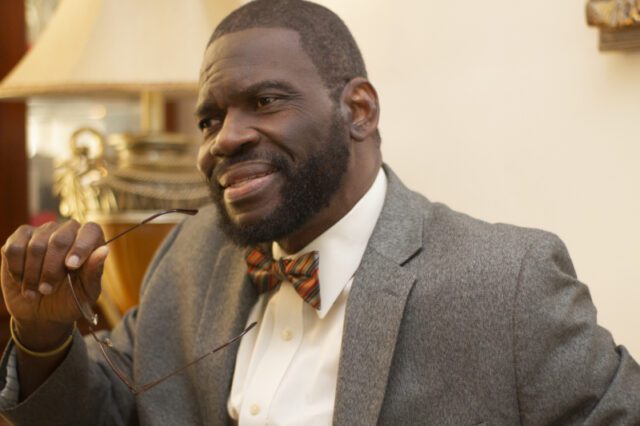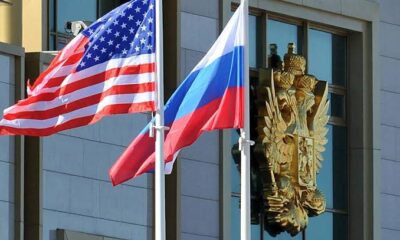National Issues
AGF Lateef Fagbemi: Initial Proactive Response, Not a Belated One, Was Needed Amid Alleged Abduction and Brutalization of NLC President Joe Ajaero -By John Egbeazien Oshodi
The AGF’s tardy involvement has transformed a localized issue into a national strike, unfurling a domino effect with far-reaching consequences. The potential ramifications echo historical instances where citizens rose against government injustices, met with governmental responses that kindled further unrest and discontent. The delay in the AGF’s response has allowed the situation to escalate, drawing parallels to past movements where citizens mobilized against perceived injustices.

Attorney General of the Federation (AGF) and Minister of Justice, Lateef Fagbemi – Where Were You Since the Reported Alleged Abduction and Brutalization of NLC President, Joe Ajaero, That Reverberated Across National and Global Headlines?
AGF Lateef Fagbemi and the Presidency: Missed Opportunities for Timely Intervention – Neglecting Broader Justice and Democracy Amidst the Alleged Assault on NLC President Joe Ajaero, It’s Not Just About Him, It’s About the Nation and Public Fairness
In the intricate landscape of developing societies, prominently manifested in the context of Nigeria, a pervasive sense of disenfranchisement perpetually haunts citizens as they grapple with a terrain riddled with governmental abuses. Their impassioned pleas, resonating with grievances regarding human rights violations, police brutality, and unjust court practices, often echo into a disconcerting silence or, worse yet, face the heavy-handed response of authoritarian regimes that have, regrettably, been a recurring feature across successive governments. This oppressive pattern underscores the challenging journey citizens navigate, where their pleas for justice and fair treatment frequently collide with authoritative resistance, contributing to a climate of persistent disenchantment and frustration among the populace.The question now lingers—will the government resort to the heavy-handed tactics witnessed during the #EndSARS protests? Will they turn a blind eye to police brutality, military excesses, and the use of pro-government thugs against the protesters? The gravity of these questions demands a thoughtful and measured response from the government.
The reported incident serves as a poignant reminder, not merely isolated but emblematic of a more extensive pattern of governmental transgressions. It reverberates the sentiments of a populace that has long felt marginalized in the face of a myriad of grievances, spanning from human rights violations and police brutality to unfair court practices and labor issues. However, the unfolding events in recent times have brought to light a notable shift in this entrenched dynamic—a citizenry increasingly unwilling to acquiesce to the prevailing status quo. This newfound resolve persists even when confronted with the ominous specters of potential brutality, death, or the heavy-handed suppression wielded by the government. The resilience of the people reflects a profound yearning for justice, accountability, and a departure from the oppressive norms that have long characterized their sociopolitical landscape.
Against the backdrop of the alleged assault on NLC President Joe Ajaero, the role of the Attorney General of the Federation (AGF), Lateef Fagbemi, becomes pivotal in the quest for justice. The need for external oversight could have gained prominence in his forward-looking thinking. The AGF could have immediately announced that the government is engaging external entities, such as a selected body of State Prosecutors, state Attorneys General, or specialized legal investigators from reputable organizations like the Nigerian Bar Association (NBA). The aim is to ensure a transparent, objective, and thorough investigative process, alleviating concerns about bias or undue influence. The AGF could have insisted that the Inspector General of Police step aside from investigating itself, as police investigating police when they are the suspects raises questions about the commitment to impartiality. As the chief legal representative of the nation, the AGF’s counsel should have promptly informed the President of the necessity for external bodies to lead the inquiry when this national abuse surfaced.
Since November 1, 2023, when media outlets brought this police brutality into the public eye, the AGF had ample time to advocate for a transparent and unbiased investigation. The call for an inquiry by bodies independent of the accused entity underscores the urgency of preserving the investigative process’s integrity. The AGF’s role as the chief legal representative of the nation should have prompted an immediate and decisive response to ensure that justice is pursued through impartial means. The delay in taking such action allows room for skepticism and erodes public trust, highlighting the need for swift and proactive measures in addressing matters of national concern.
In the aftermath of the Nigeria Labour Congress (NLC) and Trade Union Congress (TUC) and others’ decision to initiate a nationwide strike, including Workers from various sectors, including oil, banks, maritime, electricity, legislature, and federal employees, have joined the nationwide strike in Nigeria to protest the assault on NLC President Joe Ajaero, despite a restraining court order remains a great industrial move. This widespread support for the strike signifies a unified stance against injustice and abuse of power. The fact that workers from diverse sectors have come together demonstrates the gravity of the issue and the collective determination to demand accountability. The government’s dismissal of the strike as unwarranted misses the broader context and fails to acknowledge the deep-seated grievances that have culminated in this widespread industrial action.
The Presidency’s fully late and then insensitive response exposes a misunderstanding of public sentiment. Characterizing the strike as unwarranted and an attempt to blackmail the government reflects a disconnect. The confusion surrounding the punishment of the nation for a perceived personal matter raises concerns. The condemnation of the abuse of privilege in calling a strike disregards the right to collective action. The AGF’s counsel against the strike, coupled with an appeal to respect the court order, adds another layer of complexity to the unfolding narrative. The government’s response to the strike seems out of touch with the genuine concerns of the people, emphasizing the need for a more empathetic and nuanced understanding of the situation.
The government’s illogical interpretation of the strike as a personal issue unravels upon scrutiny. Although the Labour President was an individual victim, he symbolizes the collective voice of workers nationwide. This is not merely about an individual; it is about democracy, ethics, rule of law, and fairness. The attempt to use a court order to quell peaceful protests reflects an authoritarian tactic destined to falter in the face of constitutional democracy. The AGF’s lapse in constituting an external investigative body in a timely manner exposes a failure in due process, placing blame squarely on the shoulders of the chief legal representative of the nation. The AGF’s role is pivotal in upholding justice and ensuring a fair and unbiased investigation, and any delay in this process diminishes the government’s credibility and exacerbates public discontent.
The AGF’s tardy involvement has transformed a localized issue into a national strike, unfurling a domino effect with far-reaching consequences. The potential ramifications echo historical instances where citizens rose against government injustices, met with governmental responses that kindled further unrest and discontent. The delay in the AGF’s response has allowed the situation to escalate, drawing parallels to past movements where citizens mobilized against perceived injustices. The resonance of historical unrest amplifies the significance of the current moment, underlining the need for a strategic and timely approach to address citizens’ concerns.
As the AGF and the presidency confront the burgeoning national strike, the stakes are high. Their failure to proactively announce an external investigative body at the outset of this sensitive matter has transformed it into a personal affair for NLC President Joe Ajaero. The question now lingers—will the government resort to the heavy-handed tactics witnessed during the #EndSARS protests? Will they turn a blind eye to police brutality, military excesses, and the use of pro-government thugs against the protesters? The gravity of these questions demands a thoughtful and measured response from the government.
The potential consequences of such actions are not to be underestimated. The historical context, rife with instances of citizens challenging government injustices, accentuates the critical juncture at which the AGF and the presidency stand. Their decisions in the coming days can either address the root issues, fostering reconciliation, or exacerbate existing problems, plunging the nation into deeper unrest and discontent. The ripple effect of their actions will resonate across society, influencing public trust, political stability, and the perception of democratic values.
In the dynamic and intricate landscape of a developing nation like Nigeria, where the delicate balance between governance, justice, and the will of the people is ever-shifting, leaders bear a profound responsibility. It’s not just about legal duties; it encompasses a deep understanding of the far-reaching implications for the nation’s democratic journey. The Attorney General of the Federation (AGF) and the presidency, as the vanguards of justice and democracy, shoulder the weighty responsibility of navigating the nation through this complex terrain.
The unfolding events serve as a stark reminder of the pressing need for a proactive and empathetic approach, one that goes beyond the confines of bureaucratic processes. It calls for a leadership that not only acknowledges but wholeheartedly addresses the legitimate concerns of the people. This requires an unwavering commitment to principles of justice, transparency, and the fundamental tenets of a democratic society. The critical juncture at hand presents a rare opportunity to mold the course of Nigeria’s democratic evolution, influencing its resilience in the face of challenges and its fidelity to the rights and aspirations of its citizens.
The failure of the AGF to promptly establish an external investigative body speaks not only to a breakdown in due process but also to a disconnect in understanding the gravity of the situation. The repercussions are not confined to the immediate context; they resonate with historical instances where citizens, disillusioned by government injustices, sought avenues for redress. The AGF and the presidency find themselves standing at a pivotal crossroads, where the decisions they make can either catalyze positive change or exacerbate existing problems, further fueling unrest and discontent among the Nigerian populace.
This critical juncture demands a nuanced and corrective response that transcends mere bureaucratic rectification. The urgency lies in swift and decisive action to restore faith in justice and democracy. It requires the reestablishment of trust and accountability in the eyes of the people, acknowledging that the path chosen in this pivotal moment will echo in the annals of Nigeria’s democratic history. The leaders must recognize that their decisions today will reverberate far beyond the confines of a national strike, shaping the narrative of the nation’s commitment to democratic values and the well-being of its citizens.

John Egbeazien Oshodi
Professors John Egbeazien Oshodi, who was born in Uromi, Edo State, Nigeria, to a father who served in the Nigeria police for 37 years, is an American-based police and prison scientist and forensic, clinical, and legal psychologist. A sex offender assessment and treatment psychologist. A government consultant on matters of forensic-clinical psychological services in the USA; and a former interim associate dean and assistant professor at Broward College, Florida. The Founder of the Dr. John Egbeazien Oshodi Foundation, Center for Psychological Health and Behavioral Change in African Settings. In 2011, he introduced state-of-the-art forensic psychology into Nigeria through N.U.C. and Nasarawa State University, where he served in the Department of Psychology as an Associate Professor. He has taught at various universities and colleges including Florida memorial University, Florida International University, Broward college, Lynn University, and a contributing faculty member at the Weldios university in Benin Republic, Nexus International University, Uganda, Nova Southeastern University and Walden University in USA. He is a Human Rights Psychologist with a focus on African related environments. john.oshodi@mail.waldenu.edu










